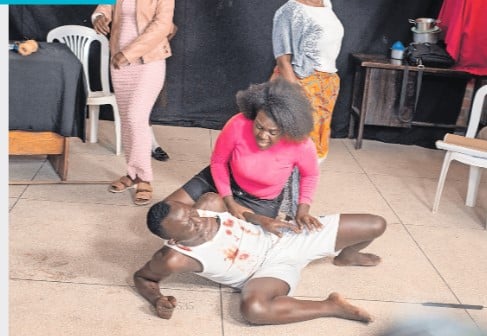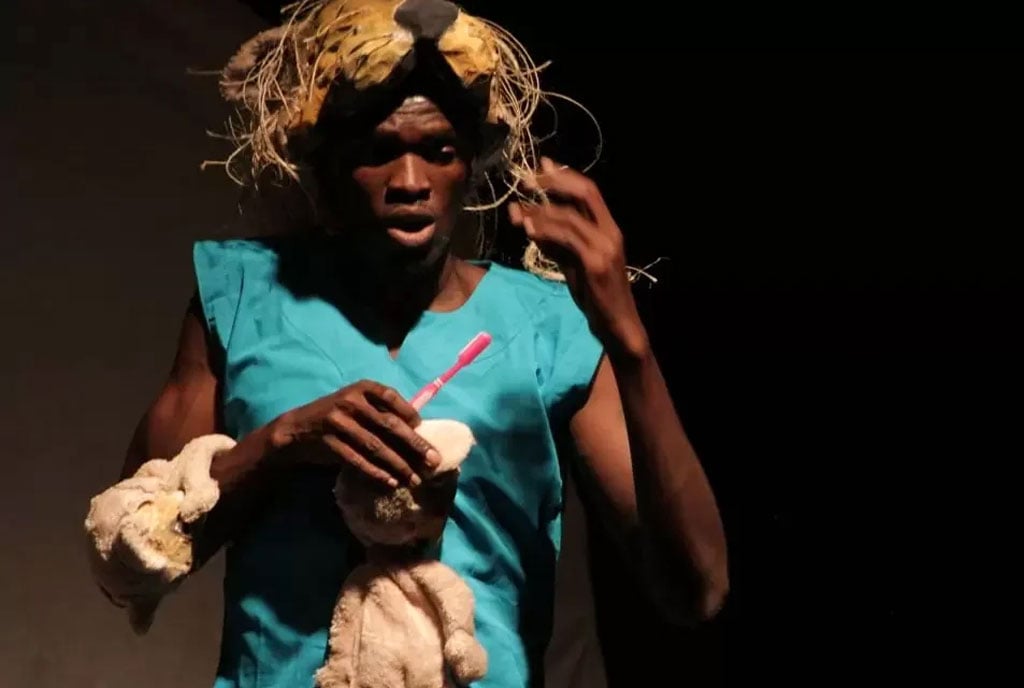Making a case for community theatre

Angels of KTLC during one of the shows after a training with Tebere Arts Foundation. PHOTO/ ANDFREW KAGGWA
What you need to know:
- The other day someone commented that no wonder the Parliament is close to the National Theatre, that's where they get their acting and drama from
For some reason, local media has derailed people's beliefs of what theatre is. Whenever something awkward happens at the Parliament, the media will find a way of calling whatever it was ‘theatre’.
The other day someone commented that no wonder the Parliament is close to the National Theatre, that's where they get their acting and drama from.
Yet on the contrary, whatever we see in the Ugandan Parliament is simply a reflection of the voters, their state of mind and probably motivation.
Theatre on the other hand, is not a place for jokers, thespians take a lot of time to master their craft before the public gets to see it on stage for the first time.
But theatre has been generally struggling, something that has come up in conversations various times.
Different people have been finding ways to take theatre to the people, in ways that speak to them better - community theatre.
Community theatre is a theatrical performance that is made by, for, or with a community. It can include productions that are entirely community-made, collaborations between community members and professional artists, or performances made by professionals for a specific community.
At the beginning of the year, the playwright and director Phillip Luswata turned a school into a community space.
That was the birth of Wava Theatre, the goal was to premiere a production on a weekly basis, however it's not very clear how many have come through.
Though, they have at least managed to have shows at Bat Valley Theatre especially during the Kampala Theatre and Performing Arts Festival by Mariam Ndagire.
In an early interview, Luswata said the reason he took the community theatre direction mainly had to do with the fact that at the moment, Ugandans expected to consume theatre are staying further from the places theatre is practiced.
He believes no one wants to leave their house on Sunday to come to Kampala to see theatre.
Thus, taking the art closer to the people and allowing them to participate and create it will create a new generation of theatre lovers and thespians at the same time.
In the same vein, while organising for the Kampala International Theatre Festival, which is set for this month, the team at Tebere Arts put their rehearsal camp at Kamwokya Treasure Life Centre.
But before the rehearsals, early in the year, Tebere Arts did a community theatre programme from the location. Through the workshops, locals were trained and taught different aspects of doing theatre.
At the end of the 14-day workshop, the Tebere Arts emerging artists and a drama group from Kamwokya came together and created short plays that were exhibited.
Tabu Flo, the dance organisation known by many for putting together some of the best theatre dance productions, has been onto the same path as well, curating dance productions in makeshift spaces outside of town and utilising non-conventional venues for shows.
In fact, their collaborational show with Elvis Erasu at the Hang Out in Jinja last week was too an example of this, taking theatre where people are.
Other people have been creating programs, some of which are taking place outside of Kampala, with the main aim of either bridging the gap between theatre and the people or making the art accessible to those who thought it was sophisticated.




